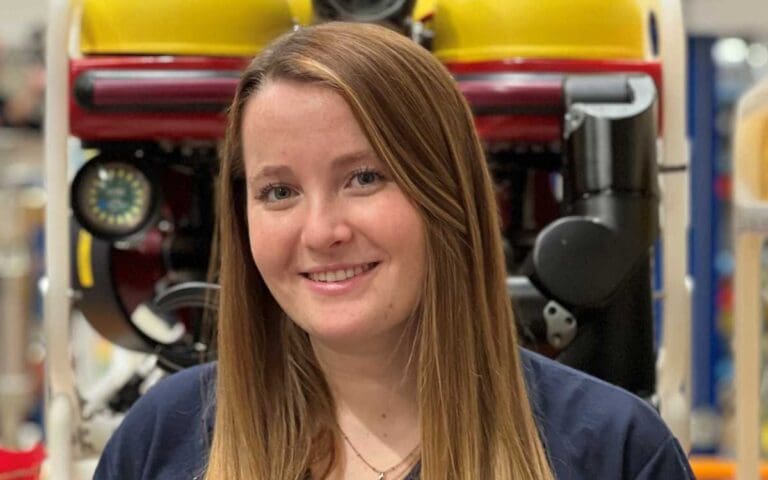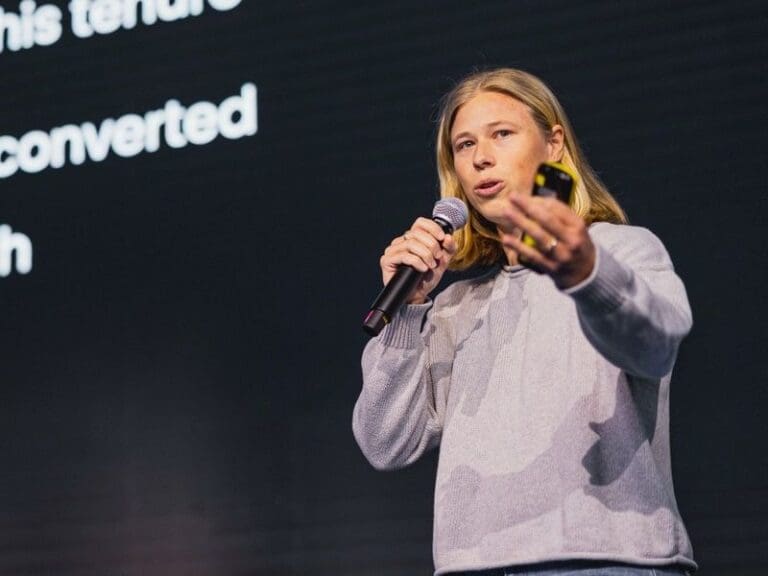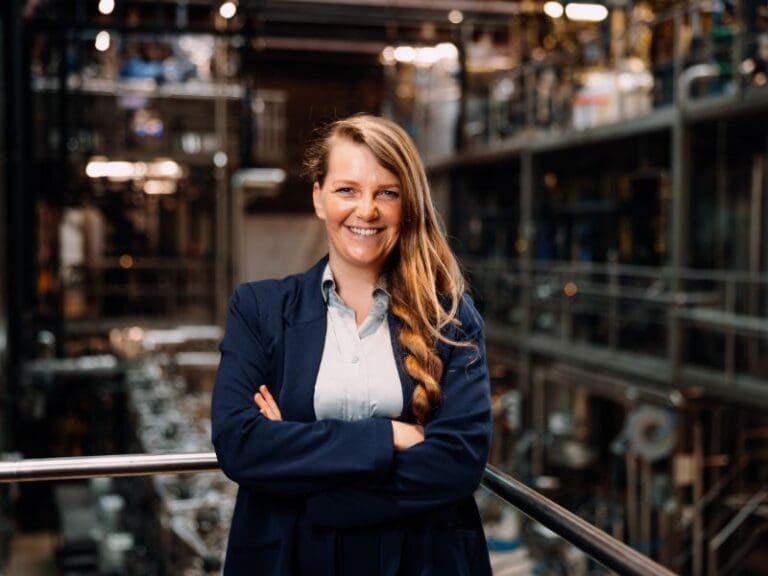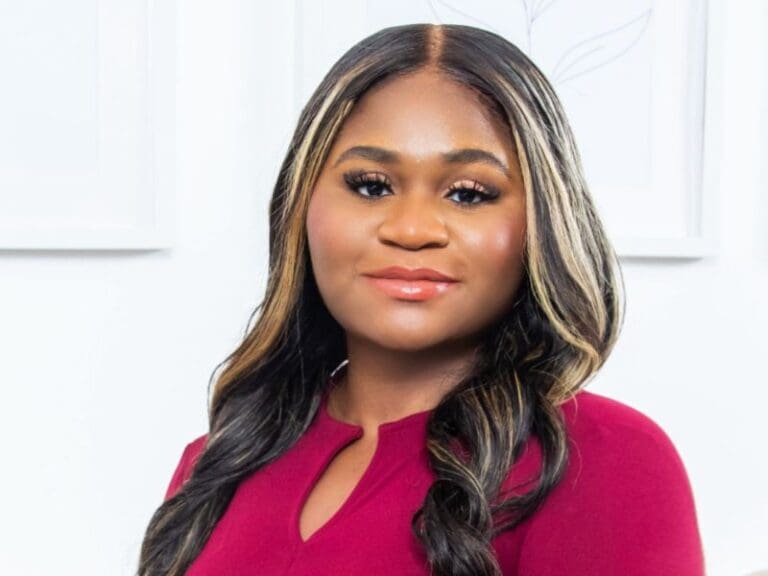Georgia has recently finished her level 4 & 5 apprenticeship in Engineering with Seaeye, a subsidiary of Saab UK.
She is now a crucial team member in the engineering of key ROVs, including the Seaeye Falcon.
How did you land your current role? Was it planned?
I landed my current role through a series of unexpected turns and fortunate opportunities. Initially unsure about my career path, I pursued general A levels in college. It wasn’t until one of my tutors suggested engineering due to my interest in physics and maths that I found a direction.
During my BTech in engineering, a project day introduced me to companies seeking recruits. It was then that I met the Early Careers Team Leader from Seaeye, Saab UK. His invitation for a company tour and subsequent interview for an apprenticeship opened the door to my current role. While my career trajectory wasn’t meticulously planned, discussions with my tutor and Seaeye, along with introspection about my preferences, led me to choose an apprenticeship with Seaeye, in manufacturing and building systems over attending university.
Reflecting on my journey, I’m content with my decision. I’ve found fulfilment in my hands-on role, and I believe it was the right choice for me, despite initially considering three university offers. I’ve come to understand that the decision between university and apprenticeship is deeply personal and depends on individual preferences and circumstances.
What are the key roles in your field of work, and why did you choose your current expertise?
In my field of work, there are various key roles within the integration team. Each team member brings unique expertise that contributes to the overall functionality of the team. For example, some individuals may have a background in offshore operations, specialising in piloting ROVs and manipulators. Others, who has been with the company for a long time, possess valuable knowledge about the company’s history and operations. Additionally, there are team members who are more software-oriented.
Personally, I chose to specialise in integration because of my hands-on experience and diverse background. Through my apprenticeship, I gained exposure to different departments within the company, which equipped me with a comprehensive understanding of the individual components we integrate. This knowledge allows me to troubleshoot and address issues effectively.
Moreover, I opted for integration because of the promising career path it offers. While I enjoy being hands-on, I also value the opportunity for career advancement and diversity. Integration opens doors to various opportunities, including offshore work, technical support roles, and even travel opportunities. I appreciate the prospect of the chance to constantly learn and adapt to new challenges.
Did you (or do you) have a role model in tech or business in general?
My role model in business isn’t directly from the tech field, but rather my mother, who works as a dental technician. Despite the difference in industries, I’ve always admired her relentless determination and drive for success in her career.
She has continuously pushed herself to excel and has become one of the best in the UK in her field. Witnessing her journey of building her own business and constantly striving for improvement has been truly inspiring for me. Her strength and perseverance serve as a remarkable example, especially as a strong woman in her profession. It’s truly amazing to have such a powerful role model to look up to.
What does an average work day look like for you?
My average workday involves building ROV systems, particularly focusing on our Seaeye Falcons. Due to varying project timelines, I often need to juggle my time efficiently, especially as the Falcons have a quicker turnover compared to larger systems.
I manage my time by alternating between working on Falcons and learning from colleagues who specialise in the bigger systems. There isn’t a set ratio for this; I gauge it based on project progress and use downtime to expand my knowledge by learning from more experienced team members. This approach has allowed me to gradually take on larger system builds and continue expanding my skill set.
Are there any specific skills or traits that you notice companies look for when you’re searching for roles in your field?
Companies in my field, like Saab UK, value proactive individuals who possess a thirst for knowledge and a willingness to learn and expand their skill set. While having prior knowledge is beneficial, they also prioritise candidates who demonstrate a genuine desire to acquire more knowledge.
The company offers comprehensive training programs, as evidenced by my own experience with apprenticeships, where everyone is willing to invest time in teaching and mentoring individuals who actively engage and absorb the information provided. Ultimately, they seek employees who are attentive, receptive, and demonstrate a strong work ethic. As long as individuals show genuine engagement and effort, the company is supportive and willing to help them succeed.
Entering the world of work can be daunting. Do you have any words of advice for anyone feeling overwhelmed?
Entering the workforce can feel overwhelming, especially coming from school, college, or university. It’s a significant transition that often brings new responsibilities and challenges. For those feeling daunted, I recommend prioritising time management. Balancing job duties with other obligations, like college work for apprentices, requires careful planning and organisation.
Additionally, finding supportive colleagues and confiding in them can also alleviate feelings of overwhelm. Communication with managers is essential; being open about challenges allows for potential solutions to be addressed. Remember, communication is key, and discussing feelings and concerns can lead to positive outcomes in the workplace.







